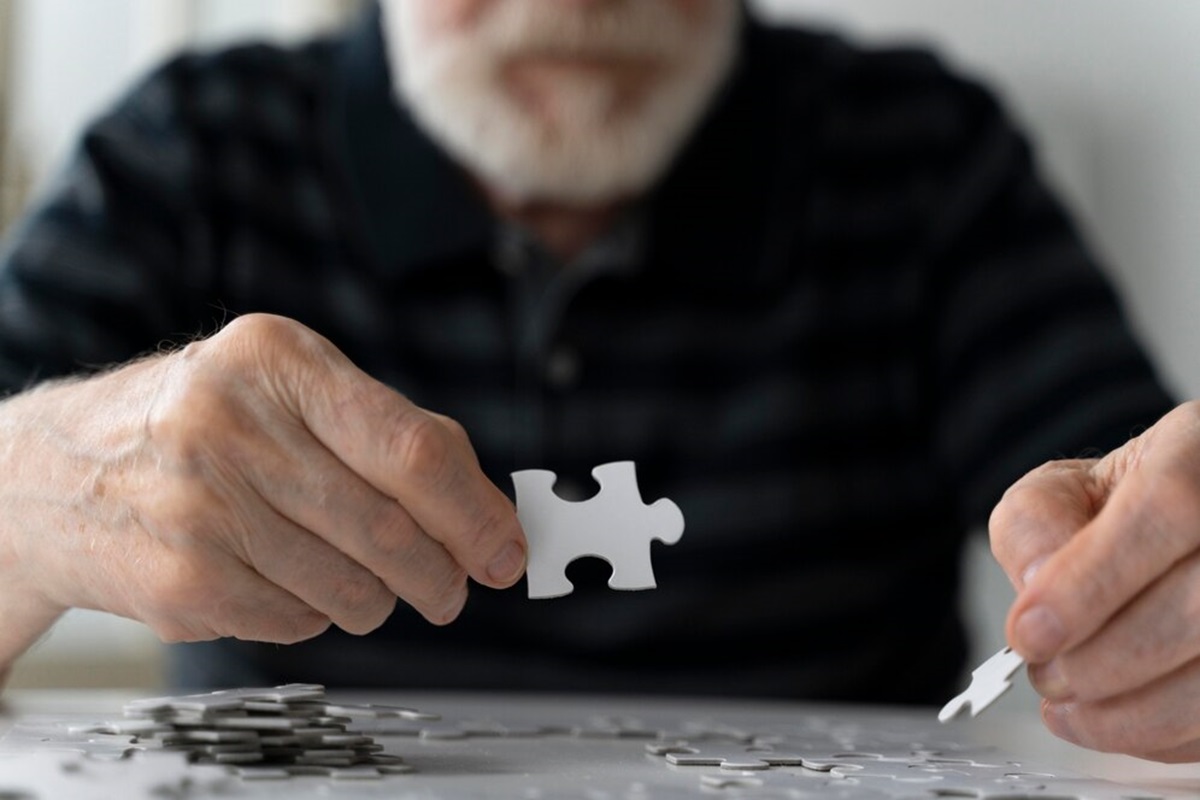How to Help Someone with Dementia
Dementia is a general term used for neurodegenerative syndromes with common symptoms of memory loss, confusion and other thinking processes. These progressive brain diseases come in numerous forms and are most often seen in the aging population, but are not considered a normal part of healthy aging.
The progressive characteristics of the disease can create fear and concern when a loved one is diagnosed. However, there are ways you can support an aging parent or family member who is living with dementia.
If you want to learn how to help someone with dementia, whether it’s early or later stages, continue reading for the best dementia caregiver tips.
What is Dementia?
Dementia is a general term for numerous neurodegenerative diseases that affect the brain’s processing centre and is most often associated with a general decline in cognitive function and abilities. This is not a symptom of healthy aging in older adults.
Symptoms of dementia, including Alzheimer’s disease, often start with cognitive changes before a patient presents with psychological symptoms.
Cognitive symptoms of dementia include:
- Memory loss
- Struggles to communicate
- Forgetfulness of words
- Trouble making plans
- Confusion
- Disorientation
Psychological symptoms of dementia include:
- Anxiety
- Depression
- Personality changes
- Agitation
- Paranoia
- Inappropriate behavior
Dementia progresses in three stages: early, middle, and late. These stages are also sometimes referred to as mild, moderate, and severe, which reflect the level of symptoms a person may experience. The stages can also be used by professional and family caregivers to prepare for future stages of decline.
Common Types of Dementia
There are many types of dementia. Each type affects different areas of the brain and may present slightly differently depending on the syndrome or disease that is diagnosed by a health practitioner.
The most common type of dementia is Alzheimer’s disease. While not all forms of dementia are Alzheimer’s disease, all cases of Alzheimer’s are dementia.
Dementia is caused by the buildup of two substances in the brain, amyloid, and tau, which form plaque and cause disruption in normal brain activity.
Vascular dementia (including multi-infarct dementia, subcortical vascular dementia and stroke-related dementia) is another common form of dementia that is affected by blood flow to areas of the brain.
Another well-known form of dementia is Lewy bodies, which are clumps of protein that collect in the brain’s nerve cells, creating common symptoms of dementia.
Communicating with Someone with Dementia
Dementia research has discovered effective techniques for positive communication with your loved one.
In the early stages of the disease, your loved one may still have verbal discussions, but as the disease progresses verbal conversation often transitions to using non-verbal cues.
Maintaining communication with your loved one is important to their health and wellbeing throughout their dementia journey. Your loved one may experience memory or word loss and speak more slowly. It is important that you remember your family member is still the person you love, but you will have to adjust communication styles to better connect.
Try to reduce distractions by chatting in a quiet room or turning off the TV before you begin talking. Speak at a slower rate and louder volume than you usually do. Experts recommend relying on what the dementia patient already knows so that you can establish connection more easily. For instance, you may want to talk about their favorite hobbies or a funny memory to create a safe and welcoming conversation.
Remember that symptoms can change daily, so do your best to remain patient, flexible and expect fluctuations in their behavior. When possible, meet face-to-face instead of talking on the phone since this can enhance confusion.
What to Avoid in Conversations
It’s important to remember that dementia causes many changes in the brain. These changes cause confusion and emotional dysregulation.
Speaking too quickly or offering too many ideas at once can lead to overwhelm. Avoid open-ended questions which may also cause confusion and agitation.
Becoming frustrated will only cause your loved one to feel more upset. Instead of repeating your statement over and over and over again which can feel belittling, try using hand gestures to explain your point.
Never use insults or treat your aging parent like a child. Instead offer comfort, acceptance and support. These are the best ways to support someone with dementia.
Creating a Safe and Supportive Environment
Creating a comfortable place for a patient is a great way to help someone with dementia. The confusion that accompanies dementia can be very frightening for the person living with the disease.
Creating a safe and comforting living space for your loved one can help ease symptoms that are associated with dementia. Incorporating a quiet space into their living environment is helpful for when your loved one is feeling overwhelmed. Displaying family photos and personal items of importance can help someone with dementia feel more secure, too.
Home Safety Modifications
Whether your elderly family member is aging in place or living in memory care, certain home modifications are necessary to promote home safety.
People living with dementia may suffer from reduced physical coordination and increased confusion. It is recommended to arrange rooms with generous walking space between pieces of furniture to limit tripping or bumping into things. You may also consider removing any floor rugs to lessen the risk of falls.
Enhance natural light in the home since it is less harsh than artificial light. Natural light can also promote healthier sleep cycles, which is helpful since many people with dementia suffer from sleep problems.
As the disease progresses, you may consider making additional changes to the home by installing handrails in the washrooms and introducing other types of adaptive equipment to enhance daily living.
Supporting Daily Activities
The good news is that research has shown there are lifestyle changes that are proven to be effective in managing symptoms of these diseases and promoting independence.
Creating a Routine
Creating a routine for someone with dementia has a number of benefits. Scheduling in a morning routine, for example, helps a loved one know what to expect and when. These steps can also help extend independence as well as confidence when accomplishing a task.
Follow and implement routines the person has used for most of their lives, such as when they brush their teeth and eat breakfast. You can support your loved one by using reminders such as sticky notes on the bathroom mirror or fridge door, for example.
Assisting with Personal Care
Dressing someone with dementia can be challenging, so offer your loved one adaptive Alzheimer’s clothing such as anti-strip clothing designed to support independence through self-dressing. As the disease progresses, caregiver assisted clothing options can help your loved one remain comfortable and stylish.
When offering help, it is best to take direction from the person receiving care. As a caregiver, you want to extend your loved one’s feeling of independence by concentrating on what they are able to do on their own or with minimal help. Try to picture yourself receiving care and follow the treatment you would want.
Nutritional Needs and Tips
Proper nutrition is important at any life stage. Eating the right foods becomes more important for people living with dementia because an imbalanced diet or one that is high in saturated fats can worsen disease symptoms, such as mental health.
Create a menu based on whole grains, fresh fruits and vegetables and lean proteins. Dehydration is commonly experienced when living with dementia so pay special attention to water intake, as well. Keep a reusable water bottle handy and have your loved one sip from a straw every now and then to promote hydration.
Encouraging Physical Activity and Social Interaction
Physical activity for older adults can enhance independence and overall wellbeing. Maintaining muscle mass and stamina is especially important as we age. Physical activity and social interaction have been shown to improve symptoms associated with dementia.
Try to encourage regular walks around the neighbourhood or joining an exercise class at the local community centre.
Planning for Future Care Needs
Knowing that dementia is progressive can help you plan for your loved one’s future care needs. Speak with your doctor and other healthcare specialists such as a dementia care expert to help you prepare for what may come.
There is a lot to learn about how to help with aging parents, including trying to understand when it is time for a nursing home or other memory care facility.
For older people with dementia and those who are living in the later stages of the disease, independent living becomes a health and safety risk.
When the time comes to prepare your aging parent for their move, follow this 2024 Silverts guide, “Checklist for Moving Elderly Parents,” for tips on creating a smoother and more supportive transition.
Specialized adaptive clothing for dementia and Alzheimer’s disease can also help your loved one stay comfortable while providing the caregiver with peace of mind. Silverts has created specialized adaptive clothing for seniors and an anti-strip clothing line to support symptoms of these diseases.
For more information on product options including adaptive footwear with non-skid bottoms that help reduce falls, visit www.Silverts.com.
Sources:
- Mayo Clinic. Dementia. https://www.mayoclinic.org/diseases-conditions/dementia/symptoms-causes/syc-20352013. Accessed on July 17, 2024.





No Comments